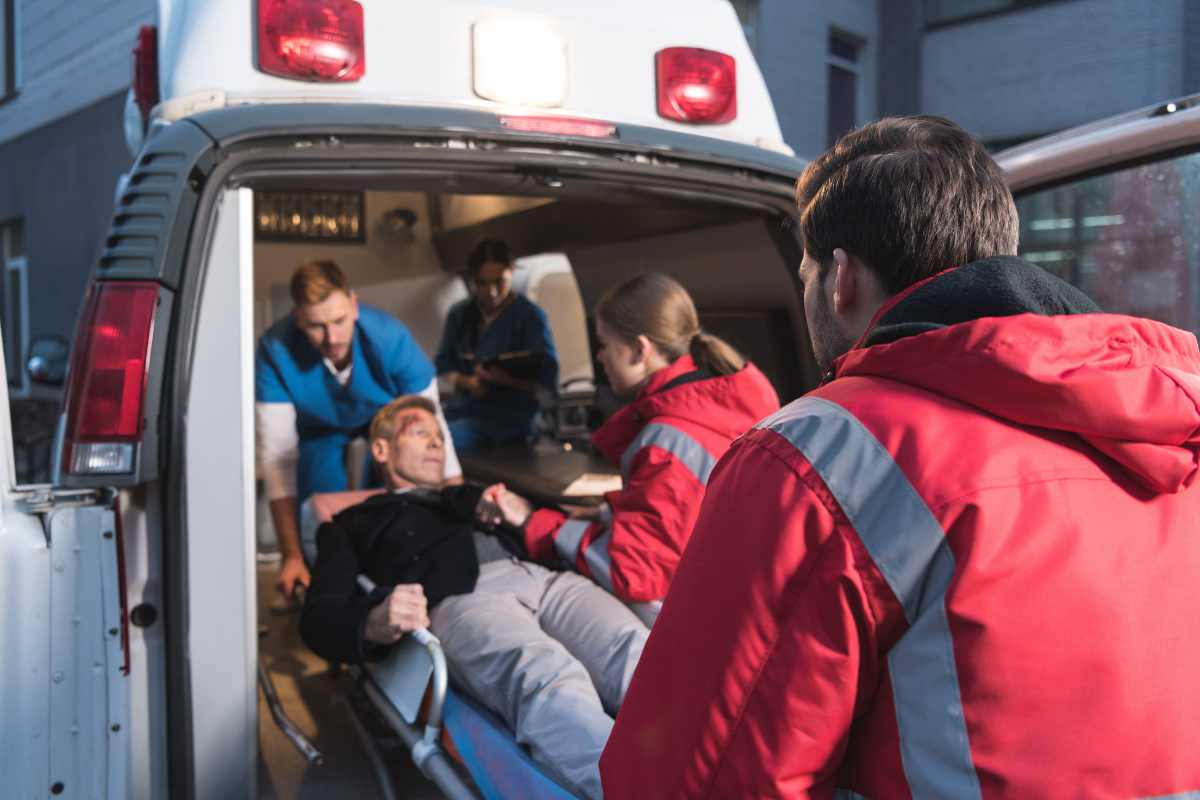Are Nurses First Responders?

Nurses play many roles in healthcare, but not every role. At least, not officially. You may be wondering, are nurses first responders? The simple answer is: No, nurses are not first responders — although, there may be exceptions to that rule.
Nurses are frontline healthcare workers. They’re as important as first responders, but operate on a different part of the healthcare continuum. Let’s explore the role of first responders, why nurses are not included in that category, and related topics that bring clarity to this question.
Who Are Considered First Responders?
First responders are the groups of people who initially arrive at the scene of an emergency, accident, or crime — but not all first responders are healthcare workers. Regardless of their unique skill sets, their purpose is to aid survivors to the best of their ability.
Some examples of first responders include:
- Police officers
- Firefighters
- Paramedics
- Emergency medical technicians (EMTs)
What Is a Frontline Worker in Healthcare?
Frontline healthcare workers provide medical services in facilities, which can include hospitals, clinics, primary care facilities, nursing homes, or locations where a healthcare worker is necessary.
But nurses and first responders often interact, especially in the emergency department. A triage nurse is one of the first people EMTs and police officers interact with when they bring patients to the hospital. Triage nurses must collect the necessary information from the first responder to prioritize patients before they’re seen.
Are ER nurses first responders? Although ER nurses are some of the first healthcare professionals who care for patients upon arrival at a hospital, they are not first responders.
Remember, first responders are the first to arrive at the scene of a crime, accident, or disaster. In these situations, first responders are the initial rung on the healthcare ladder, triage nurses are the second rung, and ER nurses are the third rung.
Nurse vs. EMT
Although nurses and EMTs are both dedicated to patient care, there are significant differences between these two roles. The role of EMTs is far more specific than that of a nurse. They’re tasked with caring for patients in transit to the hospital. Their time spent with the patient is short-lived in comparison to that of a nurse.
Nurses are responsible for patients once they arrive at the hospital and can care for them in a wider variety of settings.
Some EMT duties include:
- Responding to 911 emergency calls
- Assessing a patient’s condition
- Providing basic life support onsite and en route to the hospital
- Administering oral or intravenous medications
- Ensuring safe transport
- Creating reports detailing the treatment they’ve administered
- Reporting status, findings, and treatments to hospital medical staff
Some nursing duties include:
- Monitoring and recording patient vital signs and progress
- Drawing blood and collecting lab work
- Wound care
- Creating care plans and helping patients follow those plans
- Administering all forms of medications
- Assisting senior medical staff with procedures
- Offering medical education to patients and answering follow-up questions
When — If Ever — Are Nurses First Responders?
Nurses can choose to act as first responders in an emergency situation until the EMTs arrive. Cardiac arrest, dislocations, and burns are some examples of issues for which nurses can quickly intervene until better-equipped help is present. For example, imagine that a nurse is attending a wedding and one of the other guests has a heart attack. After calling 911, the nurse administers CPR until the EMTs arrive.
Mass casualty incidents (MCIs) are another example of when nurses may act as first responders. A mass casualty incident is defined as a situation in which the number of people requiring medical attention far exceeds the number of available healthcare workers. Mass shootings, bombings, and natural disasters are examples of MCIs. In these cases, anyone with medical knowledge is valuable.
The definition of an MCI can vary slightly based on the situation. For example, a scenario in which there are dozens of people with minor injuries wouldn’t qualify as an MCI. On the other hand, a smaller number of people with critical injuries could qualify. It all boils down to the ratio of healthcare workers to patients and the severity of the injuries. Nurses may be called upon to act as first responders in such situations.
Nurses who work at amusement parks can also act as first responders, depending on the situation. These nurses are often required to administer care to guests while paramedics arrive.
The Frontline Needs You
As you can see, the answer to “Are nurses first responders?” depends on the situation. But nurses always play a vital role in healthcare. Are you prepared to act as a first responder if the situation called for it? Find out how IntelyCare can match you with nursing jobs that can offer a fulfilling career path.



